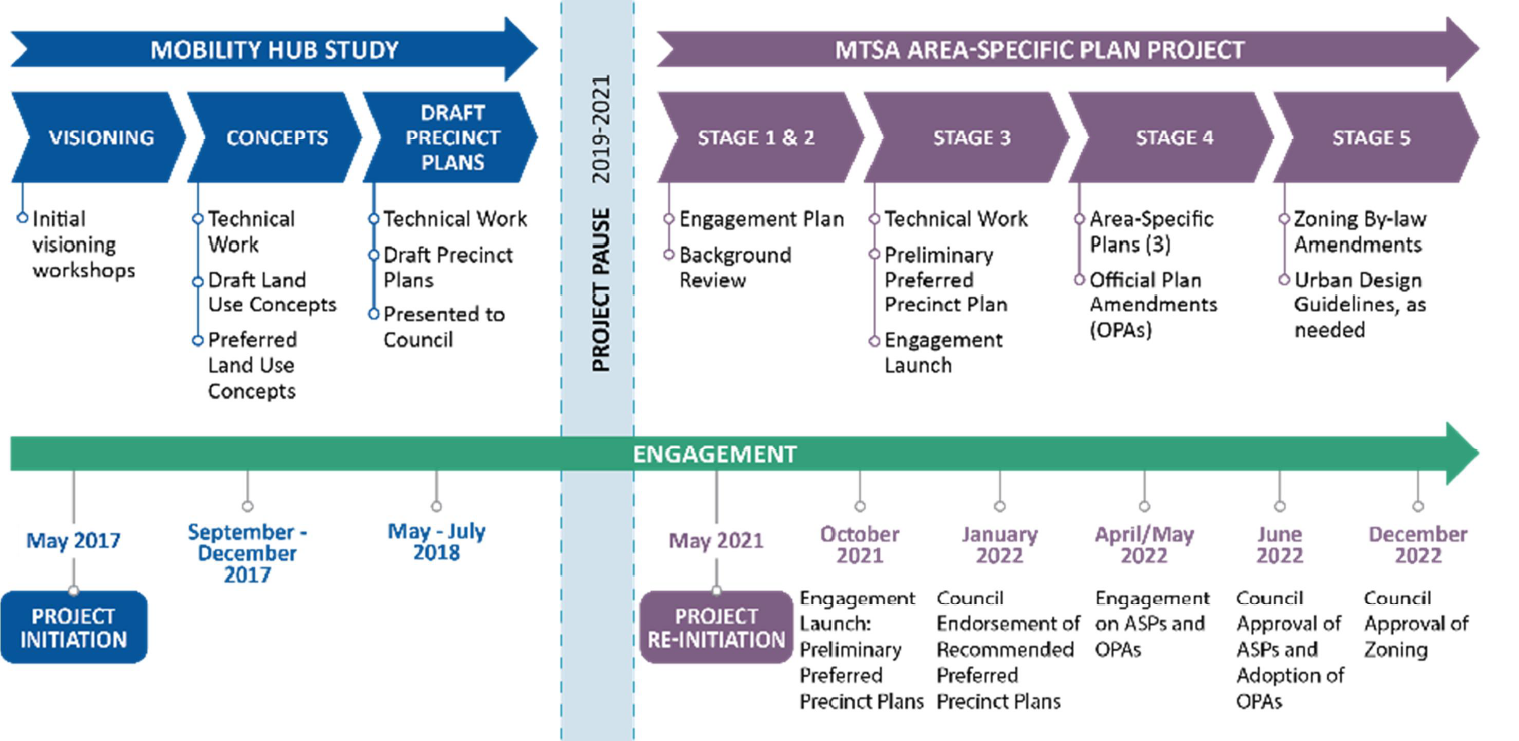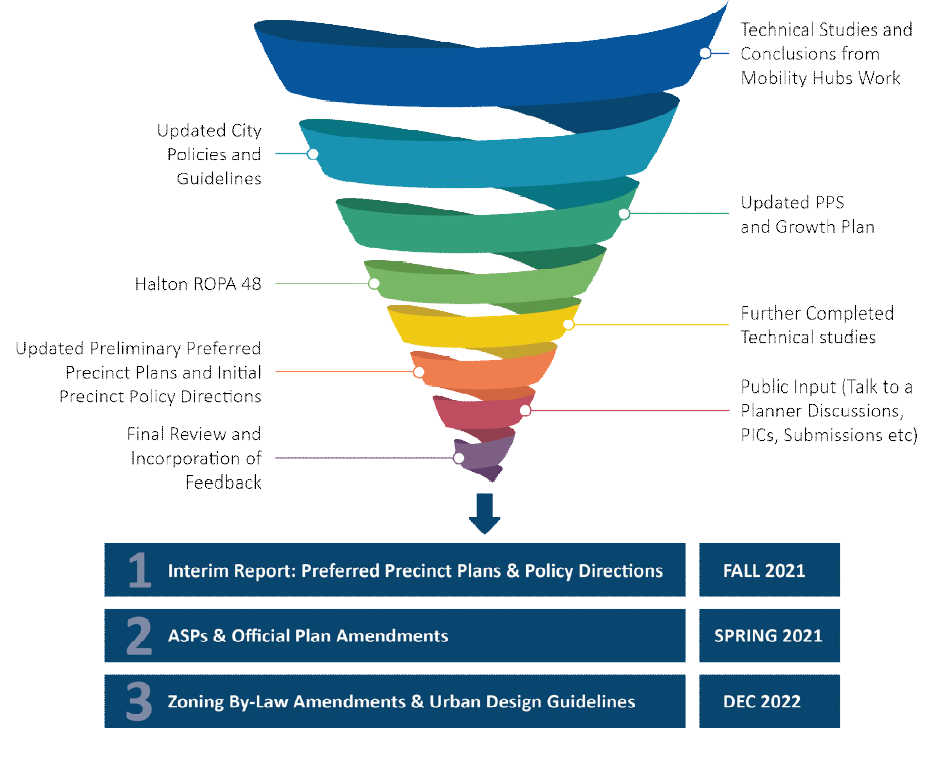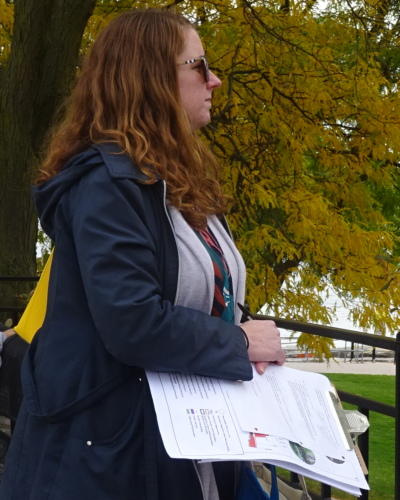 By Staff By Staff
January 4th, 2022
BURLINGTON, ON
WE are about to get a first look at what has come out of the meetings that were to determine what the development at the GO stations could look like.
A 250 page report has been released and will be debated at the January 11th Community Planning, Regulation and Mobility Committee Meeting.
Council will consider ‘in-principle’ endorsement of the Recommend Preferred Precinct Plans for Burlington’s Major Transportation Areas.
 The time line that is currently in place Council’s endorsement is a critical check point in the project that will enable staff to move forward to the next stage of the project which involves the creation of area-specific plans and supporting Official Plan Amendments for each of the MTSAs.
The Interim Report prepared by Dillon Consulting provides:
- The project background and context
- The policy and legislative context for MTSAs
- The work underpinning the MTSA ASP Project and the Preliminary Preferred Precinct Plans including key growth assumptions and complete community elements
- A discussion about how public engagement informed the Preliminary Preferred Precinct Plans
- A summary of the technical work required to support the project and a status update on each
- An outline of the changes made to the Preliminary Preferred Precinct Plans resulting in the Recommended Preferred Precinct Plans and the underlying policy directions to support them and the future area specific planning process
- Next steps and conclusions
The staff-prepared Fall 2021 Feedback Report outlines each of the tactics undertaken during October and November to engage with the public around the Preliminary Preferred Precinct Plans and includes the methodologies used, the results of the engagement or feedback received as well as some of the lessons learned.
 The steps that have to be taken to arrive ast an Area Specif Plan. There will be one for each of the GO Station MTSA’s Further changes to the Recommended Preferred Precinct Plans are expected and will be required as a result of technical studies underway, as well as other inputs including Council and stakeholder feedback and further project work.
The very unfortunate part of the process is the severe limitations COVID19 will put on genuine public participation and serious delegation.
The number of delegations that have been heard has been reduced significantly.
 Alison Enns watching a group of participants on a walking tour. Also – the opportunity to read a 250 page report a week before it is debated at council isn’t being fair to the public that is going to live with whatever is decided upon for decades.
The Gazette will read the document and report on its contents and provide some analysis.
This is difficult for staff as well. They have worked very hard on this project; they know how significant the final decision will be and everyone on the team would love to hear some sound community response. |

